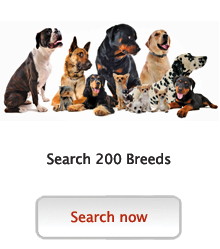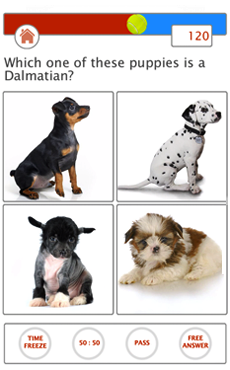How and where to find your dog from a good breeder
|
So, you’ve decided that you want a dog. You’ve thought long and hard about how getting a dog will affect your life and you’ve come to the conclusion that you’re more than ready to be a dog owner. You’ve spent time and effort researching the different needs and characteristics of breeds, and you’ve picked out the perfect breed for your lifestyle and circumstances. Now what? It’s time to find your new pet, but where will you get him from?
When finding a new dog or puppy, it’s vital that you spend a lot of time looking for him. It’s very exciting getting a new pet, but don’t be tempted to buy the first puppy you see. You need to make sure that you’re buying from a reputable breeder, otherwise you could end up with a dog with health issues.
When buying from a breeder you must make sure you do your research, ask plenty of questions, see former litters if possible and always see the mother of the puppies, if not both parents. Good breeders will have documentation about the dog’s health and family history and while these are important, they aren’t a guarantee that the breeder is credible. Above all else, never buy from a backyard breeder, pet shop or puppy farm as they practice dangerous, reckless and unsafe breeding.
Although you will want to find your puppy as soon as you can, if you are patient and take your time you will end up with the perfect, healthy dog for your family.
How to Find a Breeder
The key to finding a good puppy is finding a great breeder. It takes time and effort to source a reputable breeder, but it is well worth the hard work in the end. Good breeders will only ever want to produce healthy, well-adjusted puppies and will care deeply about finding them a loving home which they’ll have for the rest of their lives. There are a number of ways to search for excellent breeders.
Dog shows are a good starting point when you’re on the lookout for a new puppy. They allow you to meet breeders and ask them questions about their dogs, while seeing the dogs up close. You can find out about local dog shows by checking dog press or looking them up online.
Breed clubs will usually have a list of breeders in your area and will be able to provide you with recommendations, as well as be able to offer you advice for finding your ideal puppy. You can contact them directly and let them know you are interested in the breed, and find out if they know of any upcoming litters.
Trusted forums like Noah’s Dogs offer a wealth of valuable information on breeders and available litters and dogs. You can also search online for forums which specialise in your chosen breed, for personal breeder recommendations. Just tread carefully and always follow up any suggestions with your own research.
Know a friend or family member who already owns the breed you are looking for? Ask them for the details of their dog’s breeder, but make sure you check they were pleased with the breeder and their dog is healthy.
The Kennel Club is often the first place people start looking for a breeder. While the Kennel Club does have a list of registered breeders they are not screened or monitored, so it is no guaranteed that the breeder is reputable or trustworthy. Being Kennel Club registered is not necessarily an indication of quality, so further research must be carried out before you commit to buying from one of their listed breeders.
While creating a shortlist of potential breeders to buy from, don’t limit yourself to your immediate vicinity. By being prepared to travel to find the perfect puppy, you open yourself up to a great many more breeders and you can choose to buy from the most trustworthy one.
If you think you have found the ideal breeder, don’t rush into anything. Form a relationship with the breeder before you buy a puppy. Get in touch with the breeder to explain your circumstances and why you want their breed of puppy. Be completely open and honest with them and be sure to ask plenty of questions yourself . You should also visit the breeder so that you can meet them in person whilst seeing their dogs and the environment they live in. This will help you better assess the quality of the breeder and, in turn, the puppy.
Recognising a Good Breeder
It is vital to find a good breeder, who has the puppy’s best interests at heart. Once you’ve found a breeder, it needn’t be difficult to tell whether or not you can trust them. There are certain signs to look out for, which will help you determine whether the breeder is good or bad.
A good breeder will…
· Select healthy parents to mate. The breeder should always be happy to show you the mother as well as the father if he is available. · Happily answer any questions. They’ll want to talk through any queries you may have about the puppies, breed line and themselves. · Ask you plenty of questions about your circumstances, why you want a dog and how you will provide for it. Don’t be put off by a breeder who is bursting with questions for you, as it shows that they care about how the puppy will be taken care of once it has left the breeder’s care. · Provide their dogs and litters with good health care. The puppies should look healthy and should be up to date with any vaccinations or vet visits they may need. · Socialise and invest time in litters. By spending quality time with the litter they teach them basic socialisation skills and how to act around humans. · Care about where the puppies will end up, not just the money in their pocket. A good breeder breeds to create show dogs or continue the breed line; the money they get from selling a puppy is often inconsequential and their main priority when selling pets is to ensure they will be loved and provided for. · Raise litters in their home. Beware anyone who doesn’t raise litters in their own home – puppies who are raised in outbuildings or kennels are most likely being raised on a puppy farm and may pick up illnesses or have socialisation issues. · Have a thorough knowledge of the breed, dogs in general and the litter’s lineage. A good breeder makes breeding more than just a job, but an entire lifestyle. They will know the breed and their dogs inside out. · Care about your plans for breeding. The breeder may even ask you to sign a contract stating you will not breed the puppy in order to prevent backyard breeding. · Provide aftercare. A good breeder will want to help you and your new puppy settle into life together as smoothly as possible and will offer advice via phone and email whenever you need it. Most breeders will encourage you to keep them updated with your puppy’s progress so they know they have chosen the right owner. A good breeder will never…
· Create litters to order. A good breeder will plan litters in advance and find owners when the time is right, rather than breed dogs on request. · Breed their dogs too often. The legal limit for litters from the same dog is now four. · Breed potentially difficult or sick dogs. A good breeder will want to ensure the breed’s lineage is free from disease and only healthy dogs are bred into it. · Raise litters in kennels. Good breeders will raise litters in their homes where they can be kept safe and healthy, and get used to living in a home environment. · Prevent you from observing the litter. Any reputable breeder will not only be happy to show you the litter, but will encourage you to play with and meet the puppies. Never buy a puppy without seeing it and the rest of the litter.
|
- There are no comments yet









